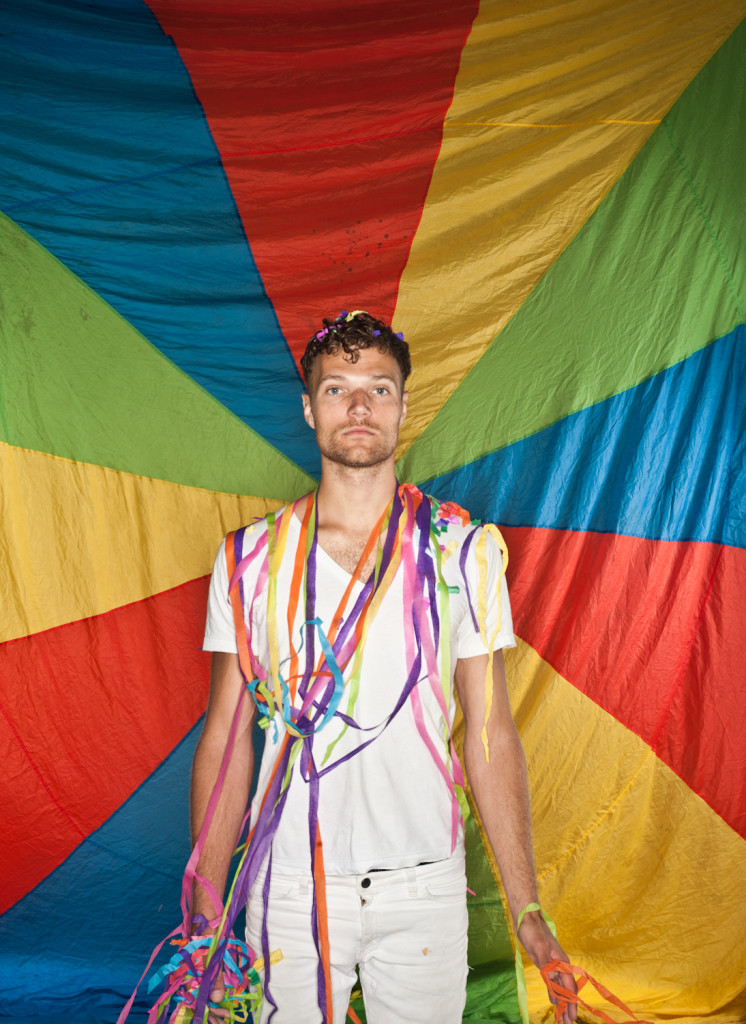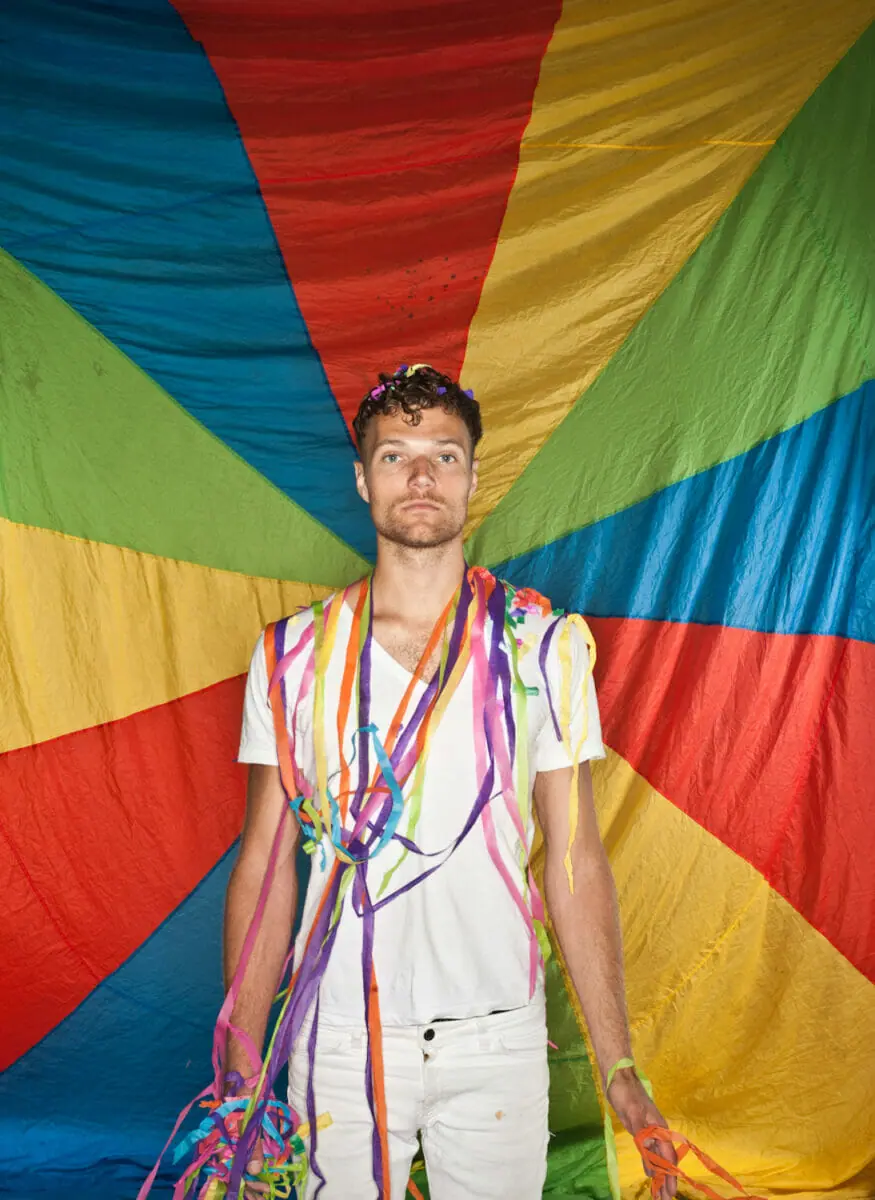
Rich Aucoin is a kinetic thinker: his insight turns more on drum machine 32nd notes than Latin aphorisms. He runs with the big questions—half marathons between shows to raise money for kids with cancer, to be exact. The former philosophy student writes his albums like essays—impossible essays where the classroom just blew out to include 520 of his closest musical friends amidst skittering 808’s and where the thesis is “We Are All Dying To Live.”
Curious life achievements are Aucoin’s specialty. His debut EP syncs with How The Grinch Stole Christmas, his shows usher slouching hipsters into an ecstatic rave under a giant parachute, and he’s known to bike (or run) for charity between gigs. Aucoin might be the friendliest musical existentialist since Brian Wilson, the most motivational ‘partyologist’ since Andrew W.K. With all this danceable carpe diem, it’s a surprise to hear Aucoin speak about Russian novels and suicidal Brits.
“I originally did the FYP [Foundation Year Program] at King’s and I was pretty into Plato, Nietzche, Hume and a lot of the existentialists. Myth of Sisyphus is definitely a favourite,” he says.
“Sisyphus,” the title of an instrumental track, is tagged onto the album like some esoteric parallel between Albert Camus’ manifesto against futility, and the stone-up-a-mountain task of squeezing 500 musicians onto a record.
“For the instrumental track “Watching Herzog and Listening to the Idiot”—it’s the two things Ian Curtis did before he killed himself.”
The Idiot, an Iggy Pop album notoriously left spinning in the Joy Division vocalist’s flat, was inspired by a Dostoevskian novel about a saintly epileptic.
“I put that in because when I was making the record I had a seizure. There was a period when everyone was like, ‘You’re epileptic.’ During my shows, I’d have to close my eyes for the strobe parts and I was really nervous that I had epilepsy—until I went and got an EKG done, which is basically them slamming a strobe light in your face at point blank range and you either have a seizure or you don’t, and if you don’t they’re like, ‘All right, you’re fine,’” he says with a laugh.
“It was crazy nerve wracking, lying in my hospital bed with all these electrodes to my head and I had a hoodie on, and I had my hands in the pouch, and when I took my hands off my stomach at the end of the test my whole stomach was just soaked from the sweat coming out of my palms. I definitely was really relieved, and it’s amazing how fast I went back to not being afraid of strobe lights.”
The scene is remarkably similar to an animated sequence in the music video for his single “P.U.S.H.” where the ‘Robo-boy’ is strapped to electrolodes and brought to life through colourful electrical shocks.
“The visuals are always really important for me, since I write all the music to sync up old movies. With the P.U.S.H. Video, it’s awesome that we put the mythology to the music.”
Aucoin’s live shows are known for communal sing-alongs, like a church choir, but he says spirituality influences his life more than religion.
“I don’t go to church now, I feel having like spirituality through other means than conventional religion is something that is still a part of my life,” Aucoin says.
“It feels more like school choir than church to me. It’s funny, growing up Roman Catholic, no one really sang everyone kind of just mumbled along. So if [the show] was like church, it’d be one of those rad, singing-like-crazy denominations.”
Aucoin will be preaching to the hometown choir at Dalhousie on Jan. 18.
“I always look forward to playing in Halifax, everyone goes pretty hard which is great. I think going with a fun group of friends is really motivating.”


Recent Comments